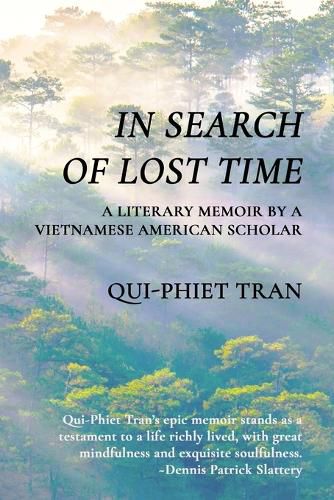Readings Newsletter
Become a Readings Member to make your shopping experience even easier.
Sign in or sign up for free!
You’re not far away from qualifying for FREE standard shipping within Australia
You’ve qualified for FREE standard shipping within Australia
The cart is loading…






This title is printed to order. This book may have been self-published. If so, we cannot guarantee the quality of the content. In the main most books will have gone through the editing process however some may not. We therefore suggest that you be aware of this before ordering this book. If in doubt check either the author or publisher’s details as we are unable to accept any returns unless they are faulty. Please contact us if you have any questions.
Can the past truly be recovered, or is our search for it inherently flawed? How do memory and imagination shape our understanding of history and self? What role does place play in the formation and recollection of memory?
Qui-Phiet Tran's semi-autobiographical sequel to Marcel Proust's Le temps retrouve explores themes Proust left unfinished. Structured on two planes, the book presents two ways of capturing the past: a physical journey through the author's native Vietnam and an introspective search for lost time. Tran embarks on a real and imagined journey through different periods of his life and the mythical history of Vietnam, blending violent historical events with fantastical elements. Simultaneously, a circular, labyrinthine inner quest leads him into the depths of his soul, unearthing forgotten memories. As these paths converge, they weave a complex tapestry of a new past, rich in color, scent, and meaning.
The theme of memory and time reaches its climax when the middle-aged protagonist revisits a beloved childhood pine forest. Exhausted halfway up the hill, like Proust's hero, he gives up his quest for lost time. Unlike Proust, however, Tran is content with his findings. He accepts the impossibility of fully recovering the past but preserves its memory through recollection and writing, choosing to bring this newfound understanding back to his life in the United States in exile.
$9.00 standard shipping within Australia
FREE standard shipping within Australia for orders over $100.00
Express & International shipping calculated at checkout
This title is printed to order. This book may have been self-published. If so, we cannot guarantee the quality of the content. In the main most books will have gone through the editing process however some may not. We therefore suggest that you be aware of this before ordering this book. If in doubt check either the author or publisher’s details as we are unable to accept any returns unless they are faulty. Please contact us if you have any questions.
Can the past truly be recovered, or is our search for it inherently flawed? How do memory and imagination shape our understanding of history and self? What role does place play in the formation and recollection of memory?
Qui-Phiet Tran's semi-autobiographical sequel to Marcel Proust's Le temps retrouve explores themes Proust left unfinished. Structured on two planes, the book presents two ways of capturing the past: a physical journey through the author's native Vietnam and an introspective search for lost time. Tran embarks on a real and imagined journey through different periods of his life and the mythical history of Vietnam, blending violent historical events with fantastical elements. Simultaneously, a circular, labyrinthine inner quest leads him into the depths of his soul, unearthing forgotten memories. As these paths converge, they weave a complex tapestry of a new past, rich in color, scent, and meaning.
The theme of memory and time reaches its climax when the middle-aged protagonist revisits a beloved childhood pine forest. Exhausted halfway up the hill, like Proust's hero, he gives up his quest for lost time. Unlike Proust, however, Tran is content with his findings. He accepts the impossibility of fully recovering the past but preserves its memory through recollection and writing, choosing to bring this newfound understanding back to his life in the United States in exile.